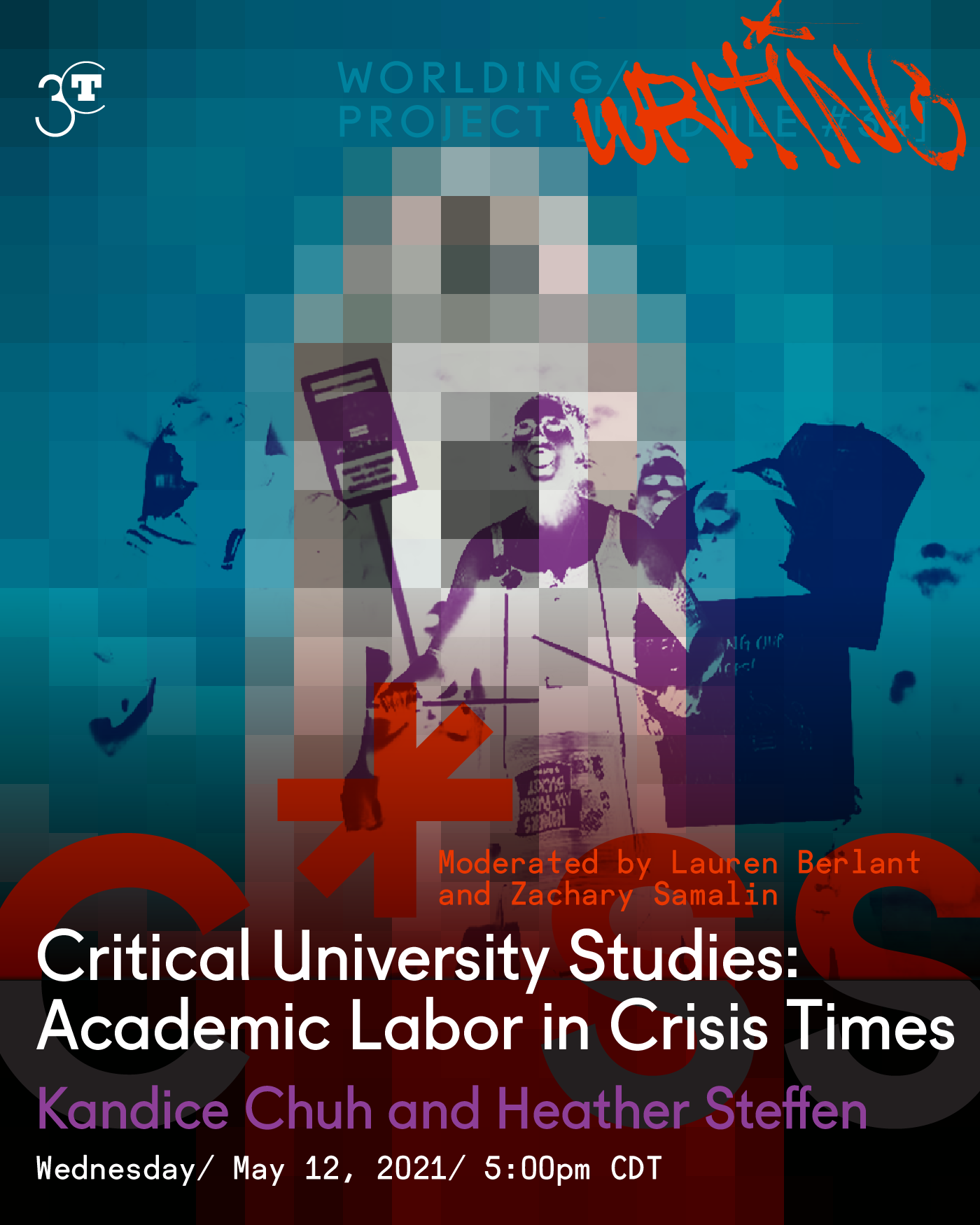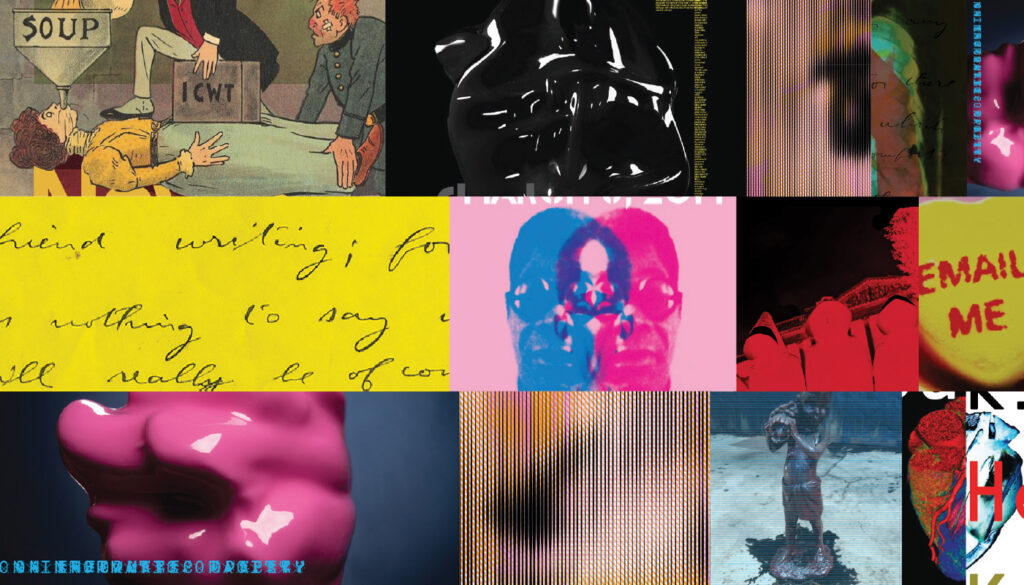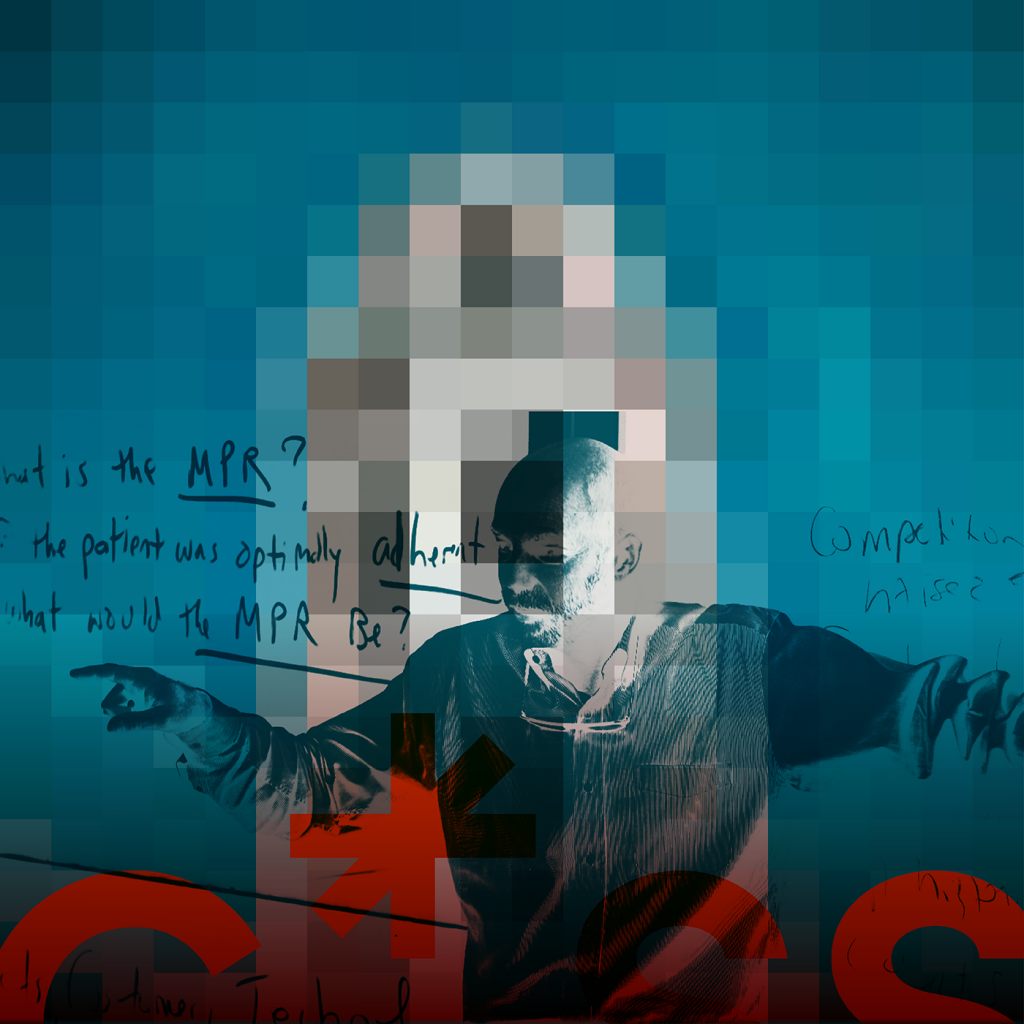Categories
Kandice Chuh and Heather SteffenCritical University Studies: Academic Labor in Crisis Times
Wednesday, May 12, 2021, 5:00pmThe faculty study group Critical University Studies (CUSS) is sponsoring two public panel discussions this Spring quarter. In this first event, Kandice Chuh and Heather Steffen will propose different ways to recast the labor students and faculty are currently doing, rethinking the work of emancipatory knowledge production and relations from where we live now. What does it mean to see “the profession” as a tableau of labor, collaboration, and world-creation? 3CT fellow Lauren Berlant and Zachary Samalin moderate the conversation.
Background: In the contemporary field called Critical University Studies, a debate is flourishing about what universities are for. This is a debate over how not to repeat the participation of higher ed in the racial, gendered, economic, and policing inequities of the past and present; a debate over how to use our resources to bring better knowledges and relations into being for the present and the future. There was never an inside or outside the university: this area of study keeps discovering entanglements of violence and desire in the orchestration of knowledge and the organization of labor.
Of course, many public and private higher ed institutions are also claiming that the university of the future must leave behind the 20th century model of the liberal arts education. This is a mixed blessing, often involving the devaluation of non-vocational training in the light of efficient credentialization. How can its laborers use this moment to transform the disciplines of discipline and the educational mission, wresting it away from one in which individuals bet on the university credential for their very lives, then sink or swim on their own?
One side of this debate is an abolitionist model, which revolts against reproducing the expropriation, exploitation, managerial fetishism and white/European elevation of abstraction central to 20th and 21st century Western higher education. This view counsels withdrawing faculty and student labor from the university insofar as it has been an arm of the security state and those sectors of capital that profit from student debt and student training in a docility that offers the degree, a professional class credential, as a weapon in an ongoing race and class antagonism. There was real desire for universities to produce and distribute transformative collective thinking, amid all of this. That real desire keeps us asking questions of it and ourselves.
The other register in the debate focuses on rethinking teaching, collaborating, and transfiguring the work of scholarship and world-building that shapes higher ed’s architectures and everyday activities. It wants to create new models of labor and value from where we are, in the mess of the present crisis that is staring universities down. How can students and faculty fight back against the austerity measures that put the humanities and interpretive sciences on the defensive, because their outcomes are not clearly or immediately convertible to reputation and other forms of economic and social capital? How can our institutions be incited no longer cynically to use the apprenticeship model to justify exploiting student labor? Is it possible to build a new world from within the world that is already waning?
Kandice Chuh is a professor of English, American Studies, and Critical Social Psychology at the City University of New York Graduate Center. Currently Executive Officer (chair) of English, Chuh teaches in such areas as aesthetics, ethnic and race studies, and queer of color critique. The author of Imagine Otherwise: on Asian Americanist Critique (2003) and The Difference Aesthetics Makes: on the humanities ‘after Man,’ her works-in-progress include a collection of essays titled The Disinterested Teacher and a project tentatively titled Studying Asia.
Heather Steffen is an Affiliated Scholar of the Rutgers University Center for Cultural Analysis. Her book-in-progress, “Useful Work: Imagining Academic Labor in the U.S. University,” analyzes scholar-teachers’ public writing about their labor from the 1890s through the present. Dr. Steffen holds a Ph.D. in Literary and Cultural Studies and has worked as a writing and literature lecturer and as a postdoctoral researcher. Her essays on faculty, graduate employee, and undergraduate labor have appeared in New Literary History, Cultural Logic, Radical Teacher, Academe, and the Chronicle of Higher Education.
Presented by 3CT and co-sponsored by the Center for the Study of Race, Politics, and Culture and the Center for the Study of Gender and Sexuality.
This event is free and open to the public; registration is required. Live captioning will be provided. Please email us at ccct@uchicago.edu if you require any accommodations to enable your full participation.


